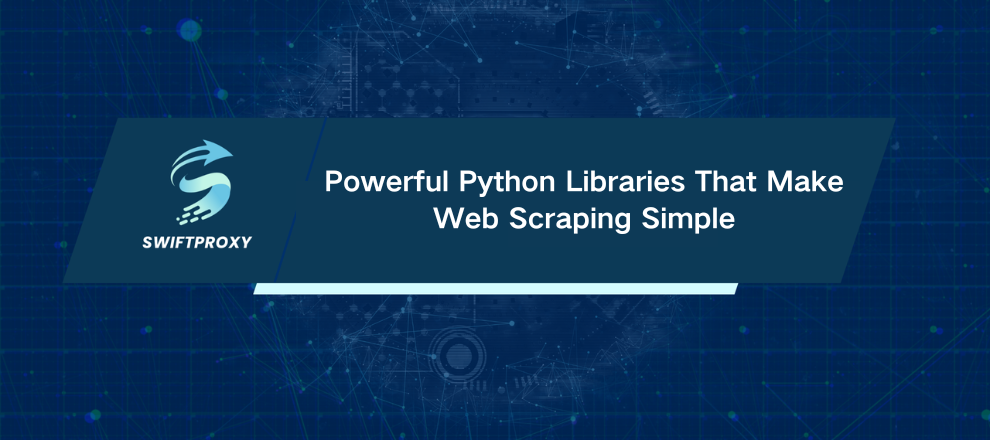Powerful Python Libraries That Make Web Scraping Simple

Web scraping is the backbone of data-driven decision-making. However, your choice of tools can make or break the whole operation. Python remains king for scraping — not just because of its versatility, but because of the powerhouse libraries it offers. These tools don't just collect data; they automate, simplify, and speed up your workflow dramatically.
Let's cut to the chase. Here are the seven Python libraries you need to know if you want to scrape smarter — not harder.
Why Python
Python isn't just easy to learn. It's battle-tested, with a thriving community that keeps pushing the boundaries. Whether you're pulling data from simple static pages or wrestling with complex JavaScript-heavy sites, Python's libraries have you covered. They'll help you grab, clean, and store data without getting bogged down in the nitty-gritty.
The 7 Best Python Libraries for Web Scraping
1. BeautifulSoup
If your target is HTML or XML and you want results fast, BeautifulSoup is your friend. It's simple, intuitive, and perfect for beginners. Need to parse page elements quickly? This library makes it painless to find and extract exactly what you want.
2. Scrapy
Ready for the big leagues? Scrapy is the heavyweight champion for large-scale scraping projects. It handles multiple sites simultaneously, supports multi-threading, and has smart error handling baked in. Scrapy also lets you export data in formats like JSON or CSV effortlessly.
When scraping is your full-time job and you need robustness and speed, Scrapy is non-negotiable.
3. Requests
HTTP made simple. Requests is the go-to for sending GET or POST requests and fetching raw data from web servers. Its clean syntax means you spend less time wrestling with connections and more time collecting data. For straightforward URL requests and quick grabs, this is your best tool.
4. Selenium
Dynamic content isn't going anywhere, and neither should you. Selenium controls a real browser, clicking buttons, filling forms, and waiting for JavaScript to run. If the page you're scraping depends on user interaction, Selenium is your secret weapon.
5. urllib3
Think of urllib3 as the engine under the hood. It's a low-level HTTP client that gives you detailed control over connections, retries, and proxies. More complex than Requests, but more powerful when you need precision and performance.
6. ZenRows
Blocked by anti-bot defenses? ZenRows tackles that head-on. It's designed to bypass bot protections and handle JavaScript-heavy pages effortlessly, while also eliminating the hassle of setting proxies or user agents manually. It's the perfect choice for scrapers who want to get past roadblocks without spending hours on complex configurations.
7. Pandas
Scraping isn't just about grabbing data — it's about making sense of it. Pandas excels at cleaning, manipulating, and analyzing structured data once it's in your hands. Whether you're dealing with tables, spreadsheets, or complex datasets, Pandas can transform messy information into clear, actionable insights.
How to Pick the Right Library
Small and simple? Use Requests or BeautifulSoup. Minimal setup, maximum speed.
Big and complex? Scrapy scales effortlessly for heavy-duty scraping.
JavaScript-heavy or interactive sites? Selenium or ZenRows.
Need fine control over HTTP and connections? urllib3 is your low-level ally.
Post-scrape data magic? Pandas handles data transformation like a pro.
Match your project's complexity with the right tool — and don't waste time on features you don't need.
Final Thoughts
Web scraping can be as simple or as complex as you make it. But picking the right Python library is the difference between banging your head against the wall and smooth, efficient data flow. Start with your project goals, the nature of your target site, and your comfort level. Then pick the tool that fits like a glove.

















































